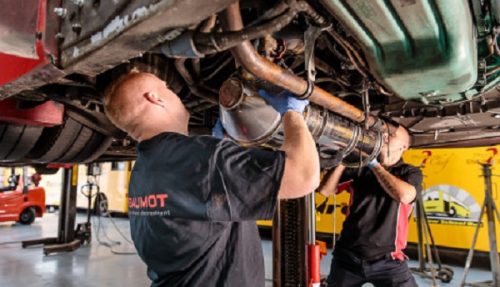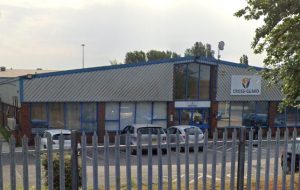Creditors set to miss out on £4.6m after failure of Silverstone-based firm

Silverstone-based exhaust technology manufacturer Baumot UK went into administration in January owing over £4.5m to creditors, according to documents seen by TheBusinessDesk.com.
The firm appointed Cowgills after the Baumot Group filed for insolvency after its core markets of the UK, Israel and Italy were affected by lockdown brought on by the Covid pandemic.
The company’s UK arm specialised in fitting buses and other vehicles to with catalytic reduction systems to reduce tailpipe emissions.
A report from the administrators reveals that after years in the research and development stage, and following start-up trading losses funded entirely by its German owner, Baumot AG, in 2018 the company signed a stock finance invoice finance agreement with Seneca Trade Partners.
Trading began to improve, and by the beginning of 2020 Baumot UK was turning a profit. However, with the onset of Covid-19 in March last year, the company started incurring significant losses due to a temporary shutdown of its factory, lack of access to clients’ premises to carry out orders and bus companies running a reduced fleet during lockdown – meaning fewer orders.
When lockdown ended, Baumot UK’s woes were still not over, as bus operators were running at 30% capacity meaning more buses were on the roads and not at depots, making it harder for Baumot UK to gain access to vehicles to work on and complete orders.
In October, after lending Baumot UK £3m, the German parent company pulled the plug and left its UK subsidiary wholly reliant on the Seneca funding facility to pay wages. Administrators from Cowgills say that Seneca’s preference was for Baumot UK to continue to trade. Indeed, the UK management team assured Seneca that there was a healthy order book and the access to customers’ premises was no longer such an issue and that stock would be used to fulfil orders. They also said a “significant” R&D tax claim had been submitted and that funds received would improve cashflow and allow the Seneca facility to be reduced to an “acceptable” level.
Seneca agreed to continue funding the firm on the proviso that its German parent would invest further funds and to help with trading.
However, in January of this year, with its exposure running at £241,000 and no sign of the R&D tax claim coming through, Seneca issued a demand on the Baumot Group under the terms of an inter-company guarantee. Shortly after this, the Baumot Group in Germany filed for insolvency.
Seneca then became aware that the UK company was seeking its own insolvency advice without notifying its main funder, say administrators.
On January 18, Seneca enforced their qualifying floating charge security and James Fish and Jason Elliot of Cowgills were appointed as joint administrators.
Documents from the administrators show a shortfall of £4.67m owed to creditors – including a £50,000 Bounce Back Loan.
A statement from the Baumot Group in January said: “Despite intensive efforts, the company has not yet succeeded in closing the resulting liquidity gap by injecting capital from investors or state support funds.
“The use of the self-administration insolvency procedure offers Baumot the opportunity to advance measures of a restructuring program and the group will use the opportunities offered by the restructuring to emerge stronger from this difficult phase for all of us.”
The UK arm of the firm, which is listed on the Frankfurt Stock Exchange, made a loss of over £3.1m for 2019, according to latest available accounts. At the time the company employed 21 people.








